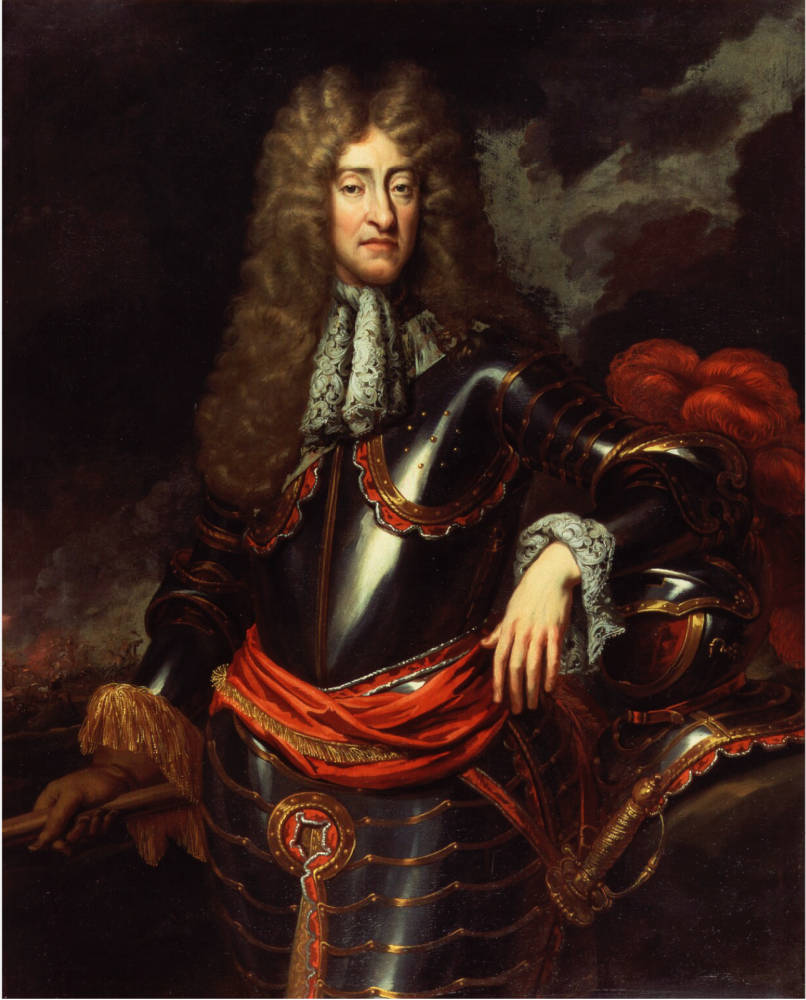
King James II (1633-1701) by an unknown Artist. Courtesy of National Portrait Gallery, London NPG 366.
To a large extent, the Roman Catholic James II (1633-1701), King of Great Britain from 1685 until he fled to France in 1688, brought the "Glorious" revolution down upon himself. When he succeeded his brother Charles II on the English throne, he proceeded to alienate virtually every politically and militarily significant segment of English society by commencing ill-advised attempts to Catholicize the army and the government and to pack parliament with supporters. He employed the Dispensing Power — the royal prerogative of suspending the operation of various statutes, declared illegal in 1689 in the Bill of Rights — to evade the Act of Uniformity and the Test Act; and his Declaration of Indulgence, issued in 1687-88, suspended penal legislation against religious nonconformity, allowing Dissenters to worship in meeting houses, and Catholics to worship in private.
When, in June 1688, he had a son, fears of the establishment of a Catholic dynasty in England led prominent Protestant statesmen to invite William of Orange, James's son-in-law, to assume the throne.

King William III 1650-1702).
Studio of Sir Peter Lely.
Courtesy of National Portrait Gallery, London, NPG 1902.
William landed with an army at Torbay in November 1688, promised to defend the liberty of England and the Protestant religion, and marched unopposed on London. James fled ignominiously to France. Parliament then met, denounced James, offered the throne to William and his wife Mary as joint sovereigns, and placed constitutionally significant legal and practical limitations on the monarchy.
A rebellion of Scottish Jacobites under Dundee threatened the rule of William and Mary, but Dundee himself was killed at the battle of Killiecrankie in 1689, and the next year the Irish and French Jacobites under James II were defeated in Ireland at the Battle of the Boyne. As soon as William felt secure on the throne after the Jacobite defeat, he brought England into the War (against France) of the League of Augsberg, which went on until 1697.
Related material
- Macaulay on the Peculiar Nature of the Glorious Revolution
- “Vicious Theory and Vicious Practice”: Macaulay on James II and Seventeenth-Century Anti-Catholicism
- Macaulay on James II and Seventeenth-Century Anti-Catholicism
- James II
- Historical Novels about Cromwell, the Civil War, and Restoration, 1830-1870
Created 1987; last modified 24 June 2020
Thanks to Don Moore for correcting a factual error.